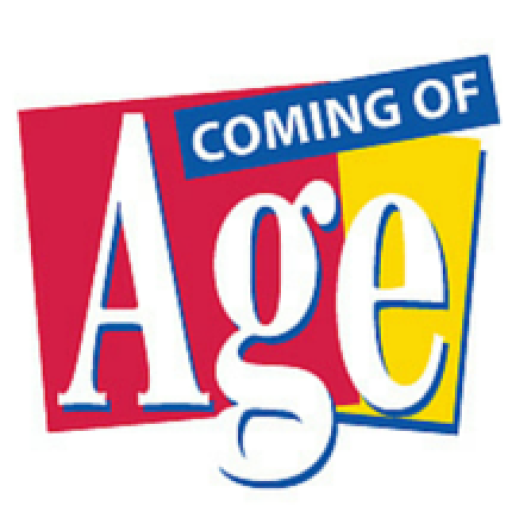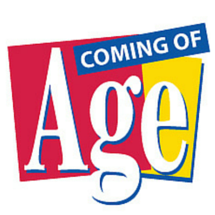Rebranding the senior center: Cities and towns embrace boomers, multigenerational programs
By Robert Weisman
Boston Globe Staff
Click here to view the original article by the Boston Globe.
At some senior centers across the state, you can find yoga and Zumba, free-form drumming, and Chinese martial arts — almost everything except the word “senior.”
That’s fine with Beth Webber, 61, who last month started visiting Plymouth’s newly renamed Center for Active Living, which was simply called the Senior Center when it opened in 2012. After sweating through a cardio-plus-weights dance class on a recent morning with two dozen others ranging in age from their 50s to 80s, Webber said her initial reservations about coming to the center had been put to rest.
“I was reluctant to join,” Webber said. “I imagined it would be chair dancing.”
Downstairs in the spacious neocolonial-style building, about a dozen mostly older women sat around a large table knitting and talking. They were enthusiastic about the rebranding. “We like it,” said 81-year-old Juanita Ward. “ ‘Senior’ makes it sound too old, and we’re not old.”
As America grays, community run senior centers are in transition — and the changes go far beyond a mere name change to evoke robust living.
Many of the roughly 225 municipal senior centers in Massachusetts are adding more “intergenerational” activities — from social media lessons taught by millennials to recitals by elementary-school musicians. Some are organizing marshland hikes and canoe trips or offering investment classes to draw baby boomers who have little interest in playing cards or bingo for hours on end.
“There is a stigma for some people about going into a senior center,” said Teresa Arnold, executive director of the council on aging in Salem, which later this year plans to open a new 20,000-square-foot Community Life Center. “The idea is to create a hub of activity not just for seniors but for all ages. The hope is to bring in younger older people.”
Such efforts are still in their early stages but are likely to accelerate as the share of older residents grows. More than 1.6 million Massachusetts residents — 21 percent of the total population — are over 60, according to data from the University of Massachusetts Donahue Institute. By 2030, that demographic is projected to top 2 million, about 28 percent of the state’s population.
Because the changes are bubbling up locally rather than being imposed by the state, they vary widely among cities and towns. Some are aggressively reinventing their aging programs while others, at least for now, continue to emphasize traditional programs ranging from adult day care and Meals on Wheels to health clinics and rides to medical appointments.
“Communities are thinking about their resources in new ways,” said Alice Bonner, the Massachusetts secretary of elder affairs. “Local leadership has to ask the question and decide how to meet their needs. If some centers can be intergenerational, that’s a good thing.”
There’s also a shift away from passive meeting places for eating and board games to more vibrant venues for lectures and the arts. It’s all the better if new senior centers can be located near schools, and high school or middle school drama students can rehearse their productions at the center.
Plymouth’s center, for example, is on the campus of the five-year-old Plymouth North High School.
“It can energize the place,” said Len Fishman, director of the Gerontology Institute at the University of Massachusetts Boston. “The newer cohort of seniors are used to Starbucks as a meeting place, so you need to have a buzz at the senior center. That can create tensions because many people who are using it now are satisfied with the way things are. But inviting other generations in, especially kids, doesn’t mean you’re going to change the whole focus.”
While many already refer to Plymouth’s senior center as the Center for Active Living, the name change must be formally adopted by Town Meeting in April. But it’s likely to face little opposition, according to a town survey showing that most residents favor the new name.
Construction of the 18,000-square-foot center off Nook Road followed nearly a decade of lobbying and political wrangling. The nearly $10 million building project ultimately was funded as part of a $199 million package town voters approved in 2006 that covered the cost of two new schools, including Plymouth North, in addition to the center. The plan was backed by a coalition of parents of school-age children, and older residents with grown children who might have been less inclined to pay for schools unless they could also benefit from the spending.
Residents over age 60 now make up about one-quarter of Plymouth’s population of nearly 60,000, said Jennifer Young, the town’s director of elder affairs. And though they have different needs and abilities, the desire to stay active is a common denominator.
“The way I think of it, you’re either actively living or you’re passively aging,” said Young, an advocate of the name change. “People are living about 20 years in retirement now, with at least 60 percent of that being healthy.”
A similar model of bundling appropriations for a senior center and a school was used earlier in the decade in Natick, where roughly one-third of residents are at least 60 years old. In 2010, voters there approved two, 20-year bond projects that raised taxes a total of $55.8 million to finance a senior center and high school. Natick has stopped short of ditching the word senior, but did rechristen the new facility as the Natick-Community Senior Center.
Some older Massachusetts residents don’t mind being labeled. “I know people my age who wouldn’t go in because it’s a senior center,” said Wendy Davis, 67, a retired office manger from Haverhill. “But I don’t understand the stigma. When you’re over 65, you’re a senior. We should be proud of what we are. We’ve lived a long life and we have experience. Why should we try to hide it?”
In New Bedford, where more than one in five residents are over age 60, there are three senior centers across the city, including one geared to Portugese speakers who gather to play dominos and board games. It also runs a social day program — adult day care for older residents with mild forms of dementia.
At the city’s Buttonwood Senior Center, located in a former warming house next to a skating pond in Buttonwood Park, about 40 residents were engaged in spirited games of bingo on a recent afternoon. “Bingo’s fun here,” said Debra Lee, director of New Bedford’s council on aging. “They’re out for blood.” Many of the Buttonwood regulars would welcome some younger players, she said, “as long as they don’t take their seats. They’re kind of territorial.”
Lee led a two-year initiative to get New Bedford certified by the AARP and the World Health Organization as one of the state’s first “age-friendly” communities, drawing up a comprehensive plan that encompassed everything from walkable streets to programs aimed at combating depression.
The next step is starting more intergenerational programs. One idea is to establish pen pal relationships between older residents and school-age children. Lee said she’s open to eventually changing the names of the centers to be more inclusive. But she notes that “our funding comes because we’re meeting the needs of seniors.”
Many of the services offered in New Bedford are specific to a community where some have fallen on hard times. Boxes of nonperishable food, such as canned soups and vegetables, donated by the Greater Boston Food Bank, are stacked in a back room at the Buttonwood center.
“We try to make sure what we offer is what people are looking for,” Lee said.
What some are looking for in more affluent Plymouth are instructions in Qi Gong — a holistic system of coordinated body posture, breathing, and meditation — and pickleball, a hybrid paddle sport imported from the West Coast that incorporates elements of tennis, ping pong, and badminton.
The active living center in Plymouth is “a hidden gem,” said Terry Mucci, 72, who gravitated there after retiring last year as a logistics manager for a women’s apparel company.
“People think a senior center is people sitting in overstuffed chairs,” said Mucci, who takes exercise classes and volunteers in the kitchen. “But this place is vibrant.”
Robert Weisman can be reached at robert.weisman@globe.com. Follow him on Twitter @GlobeRobW.

